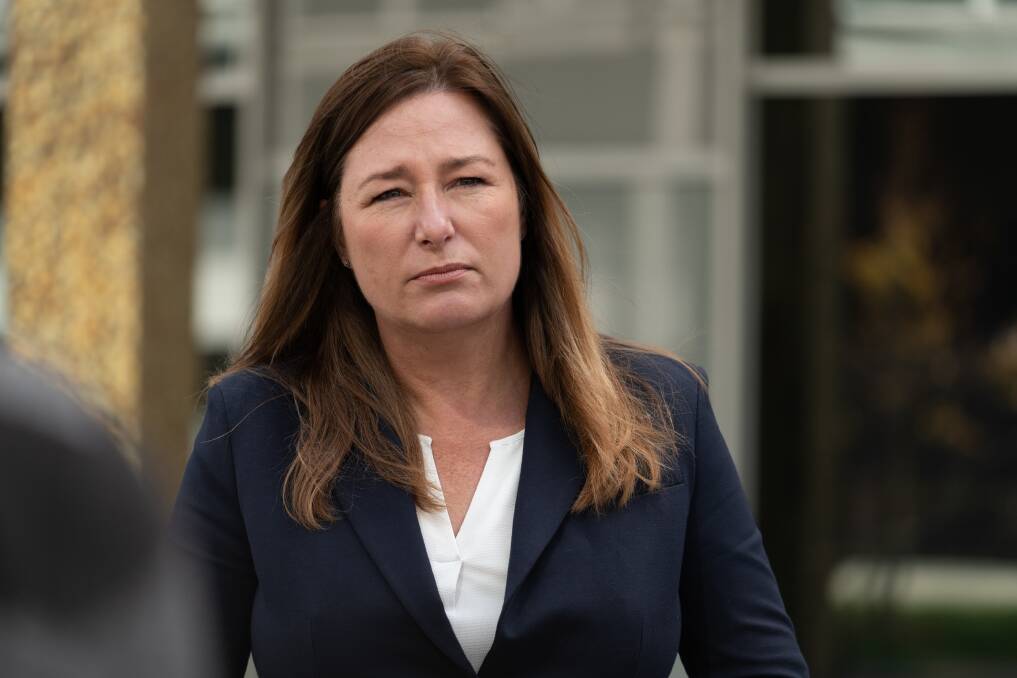
Canberra's women's health services have confidence in a federally funded trial to offer birth control counselling to people receiving emergency contraception, but say it must be implemented carefully to avoid becoming another barrier for women.
Subscribe now for unlimited access.
or signup to continue reading
The Monash University-led trial is intended to provide women getting the emergency contraceptive or medical abortion pill, more education of all their contraceptive options but has come under fire since it was announced last week.
Sexual Health and Family Planning ACT executive director Tim Bavinton said the plan could increase education and would be welcomed as long as women had the option to refuse.
He added if the pilot was successful, the program must be implemented carefully so it didn't become a deterrent for women to get the medication.
"I am sure the project as a pilot will be successful because those pharmacies are willing to [work in that way]," he said.
Mr Bavinton said women already reported some difficulties accessing emergency contraception and abortion medication in several settings, including pharmacies.
"It's important to ensure any subsequent rollout is attending to those issues of privacy, confidentiality and non-judgemental [access]."
The trial, led by the university's chair of general practice Danielle Mazza, has been under scrutiny after it was initially "misrepresented" that counselling would be offered before someone could receive the medication.
"The reality is quite different," Professor Mazza said.
"The ALLIANCE trial will provide women with the opportunity to receive evidence-based information about all of their contraceptive options in a private consulting room in the pharmacy from a specially trained pharmacist.
"This offer will be made after the woman purchases emergency contraception or fills their medical abortion prescription."
The four-year, $2.5 million trial will roll out in pharmacies across NSW, Victoria and the Northern Territory.
The trial is intended to tackle one of the main causes for unwanted pregnancy - a lack of education.
Women's Health Matters health promotion officer Julia Tran said many women were unaware of the full scope of options and the majority of general practitioners pointed them directly to the oral contraceptive pill.
"I don't see [the trial] as a deterrent because there is an option," she said.
"If such a conversation was to be offered, it's got to be in the appropriate context, and appropriate to the patient.
"That information needs to be presented in a trauma-informed manner."
She hoped it could also lead to more training for pharmacists about how to communicate with women about long-term contraception.

ACT Minister for Women Yvette Berry cautioned against "unintended consequences" of the trial.
"There are many reasons why women need to access the morning after pill and medical terminations, including after non-consensual sex," she said.
"Women should not be made to feel that they are being judged or criticised for accessing health services.
"Such steps could cause great harm and/or create a disincentive to women accessing appropriate services."
Ms Berry echoed Victorian Minister for Women Gabrielle Williams, who told The Age she was concerned women would feel "judged rather than informed".
It came after Ms Williams accused the federal government on Twitter of pushing a "not-so-subtle pro-life agenda".
READ MORE:
Pharmacy Guild national councillor Anthony Tassone said the use of term "contraceptives counselling" may have given people the wrong idea.
"In the context of a pharmacist's practice, 'counselling' refers to the provision of medicines information and other advice to suit the needs and inquiries of the patient," he said.
"Pharmacists have been entrusted to provide emergency contraception without a prescription for over a decade and have done so by following a protocol that is underpinned by professional guidelines to ensure it is done so safely and appropriately for patients.
"I've lost count of the times speaking with a patient they weren't aware of other contraceptive options, the time frame that emergency contraception is effective and what actions to take should certain adverse effects occur."
The emergency contraception pill has been available over the counter since 2004. People are required to fill out a form when they receive it.
A medical abortion pill requires a prescription from a doctor.
Professor Mazza said the trial would provide women with written information about the service and have signage at pharmacies.
Our journalists work hard to provide local, up-to-date news to the community. This is how you can continue to access our trusted content:
- Bookmark canberratimes.com.au
- Download our app
- Make sure you are signed up for our breaking and regular headlines newsletters
- Follow us on Twitter
- Follow us on Instagram


